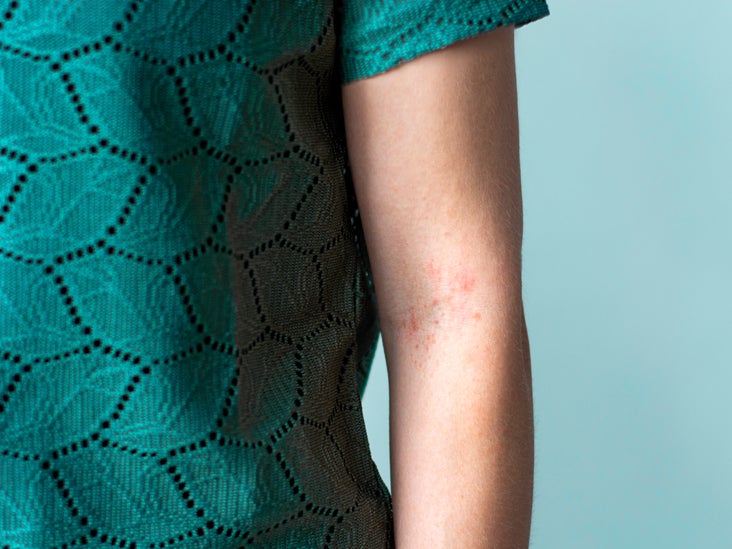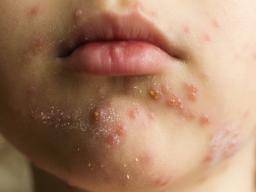Autoimmune diseases are conditions in which the immune system acts against its own tissues and organs. One common symptom of an autoimmune disease is the presence of rashes on the body. These rashes may be accompanied by itching, swelling, scaling or pain. The causes of autoimmune rashes vary from person to person, but they can all affect how a person looks and feels.

Table Of Content:
- What Causes An Autoimmune Rash? 10 Possible Conditions ...
- Skin Lupus and Scleroderma > Fact Sheets > Yale Medicine
- Lupus: Symptoms, Causes, Types & Treatments
- Rashes and Autoimmune Diseases
- Autoimmune Diseases: Causes, Symptoms, What Is It & Treatment
- Autoimmune Skin Conditions Causes & Treatment - GoodRx
- Autoimmune Hives: Causes, Symptoms, Treatments, and More
- Dermatomyositis | Johns Hopkins Medicine
- Lupus - Symptoms and causes - Mayo Clinic
- Skin rash: Causes, 68 pictures of symptoms, and treatments
1. What Causes An Autoimmune Rash? 10 Possible Conditions ...
https://primehealthdenver.com/autoimmune-rash/ Jun 24, 2022 ... What autoimmune disease causes an itchy rash? Some autoimmune diseases that may cause an itchy rash are cutaneous lupus, oral lichen planus, and ...
Jun 24, 2022 ... What autoimmune disease causes an itchy rash? Some autoimmune diseases that may cause an itchy rash are cutaneous lupus, oral lichen planus, and ...
2. Skin Lupus and Scleroderma > Fact Sheets > Yale Medicine
https://www.yalemedicine.org/conditions/autoimmune-skin-disorders Lupus and scleroderma are two autoimmune disorders that affect the skin. These diseases can also affect the connective tissues in the body as well.
Lupus and scleroderma are two autoimmune disorders that affect the skin. These diseases can also affect the connective tissues in the body as well.
3. Lupus: Symptoms, Causes, Types & Treatments
https://my.clevelandclinic.org/health/diseases/4875-lupusApr 19, 2021 ... Lupus (systemic lupus erythematosus) is a chronic autoimmune disease that can cause joint pain, fever, rashes and organ damage.
4. Rashes and Autoimmune Diseases
https://arapc.com/rashes-autoimmune-diseases/ Dermatomyositis is a systemic autoimmune disease that often begins with arm and leg weakness as well as several different rashes including: a rash on the hands ...
Dermatomyositis is a systemic autoimmune disease that often begins with arm and leg weakness as well as several different rashes including: a rash on the hands ...
5. Autoimmune Diseases: Causes, Symptoms, What Is It & Treatment
https://my.clevelandclinic.org/health/diseases/21624-autoimmune-diseases Jul 21, 2021 ... Autoimmune diseases like lupus, multiple sclerosis, rheumatoid arthritis ... fatigue, dizziness, rashes, depression and many more symptoms.
Jul 21, 2021 ... Autoimmune diseases like lupus, multiple sclerosis, rheumatoid arthritis ... fatigue, dizziness, rashes, depression and many more symptoms.
6. Autoimmune Skin Conditions Causes & Treatment - GoodRx
https://www.goodrx.com/health-topic/autoimmune/autoimmune-skin-conditions-causes-and-treatments Mar 31, 2021 ... Autoimmune conditions occur when the immune system attacks itself, often causing skin symptoms like rashes, blistering, and more.
Mar 31, 2021 ... Autoimmune conditions occur when the immune system attacks itself, often causing skin symptoms like rashes, blistering, and more.
7. Autoimmune Hives: Causes, Symptoms, Treatments, and More
https://www.healthline.com/health/skin/autoimmune-hives Jun 10, 2021 ... Autoimmune hives are red, itchy, raised bumps. They vary in size from pinhead dots to large swollen lumps. You may see an eruption of one or two ...
Jun 10, 2021 ... Autoimmune hives are red, itchy, raised bumps. They vary in size from pinhead dots to large swollen lumps. You may see an eruption of one or two ...
8. Dermatomyositis | Johns Hopkins Medicine
https://www.hopkinsmedicine.org/health/conditions-and-diseases/dermatomyositis
9. Lupus - Symptoms and causes - Mayo Clinic
https://www.mayoclinic.org/diseases-conditions/lupus/symptoms-causes/syc-20365789 Jan 27, 2021 ... The most distinctive sign of lupus — a facial rash that resembles the ... As an autoimmune disease, lupus occurs when your immune system ...
Jan 27, 2021 ... The most distinctive sign of lupus — a facial rash that resembles the ... As an autoimmune disease, lupus occurs when your immune system ...
10. Skin rash: Causes, 68 pictures of symptoms, and treatments
https://www.medicalnewstoday.com/articles/317999 There are many autoimmune diseases, some of which can produce rashes.For instance, lupus is a condition that affects a number of body systems, including the ...
There are many autoimmune diseases, some of which can produce rashes.For instance, lupus is a condition that affects a number of body systems, including the ...
What are the causes of autoimmune rashes?
Autoimmune rashes can be caused by a variety of factors, including genetic predisposition, environmental triggers such as certain foods or medications, or underlying health conditions such as allergies or infections. There is no single definitive cause for autoimmune rashes.
What are the symptoms associated with autoimmune rashes?
Symptoms associated with autoimmune rashes can include redness, itchiness, dryness, inflammation, swelling, scaling and pain. Additionally there may also be hair loss or changes in pigmentation around the affected area.
How is an autoimmune rash treated?
Treatment for an autoimmune rash varies depending on its severity and cause. Options may include topical creams and ointments to reduce symptoms, oral medications such as steroids or immunosuppressants to control inflammation and regulate the immune response, phototherapy treatments designed to disrupt skin cell production that can reduce symptoms, and other lifestyle modifications such as avoiding certain foods or avoiding certain environments that may trigger the rash.
Are there home remedies that can help treat an autoimmune rash?
Yes! While home remedies cannot always replace traditional medical treatment options for an autoimmune rash they can provide short-term relief from symptoms. Some popular home remedies include applying cool compresses to reduce inflammation and itching; drinking plenty of fluids to hydrate skin; using mild soaps that do not contain fragrances; taking warm baths with colloidal oatmeal; aloe vera gel applied directly to affected areas; and adding zinc-rich foods like oysters and eggs to your diet.
How can people prevent flare ups of an autoimmune rash?
Prevention strategies for flares of an autoimmune rash includes avoiding possible triggers like extreme temperatures; wearing loose fitting clothing; keeping skin properly moisturized with lotion; avoiding stress which is known to exacerbate many chronic illnesses including those caused by autoimmunity; eating a healthy diet with lots of vitamin A rich foods like yellow fruits and vegetables as well as omega-3 fatty acids found in fish oil supplements; exercising regularly if possible; getting adequate sleep each night; reducing exposure to toxins such as chlorine found in pools or air fresheners used in homes; and regularly taking prescribed medications if any have been recommended by your doctor.
Conclusion:
Although auto immune disease rashes can cause distress and discomfort it is important to remember that there are a range of treatments available both medical and natural which when used together can help provide relief from these symptoms over time. If you suspect you have an auto immune disease including developing a rash it is important to speak with your doctor who will be able to provide advice about proper diagnosis and best ways forward for managing flare ups.
